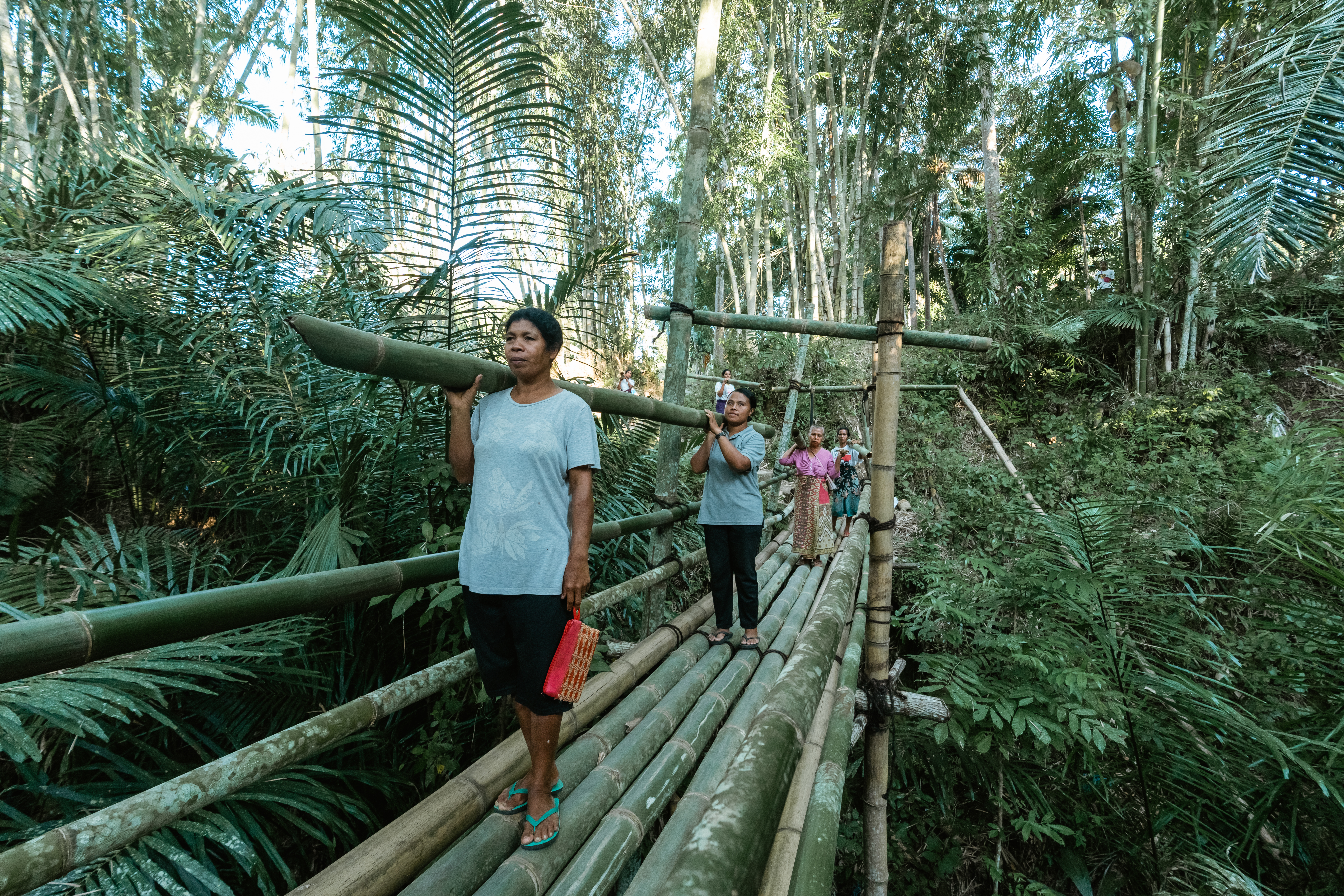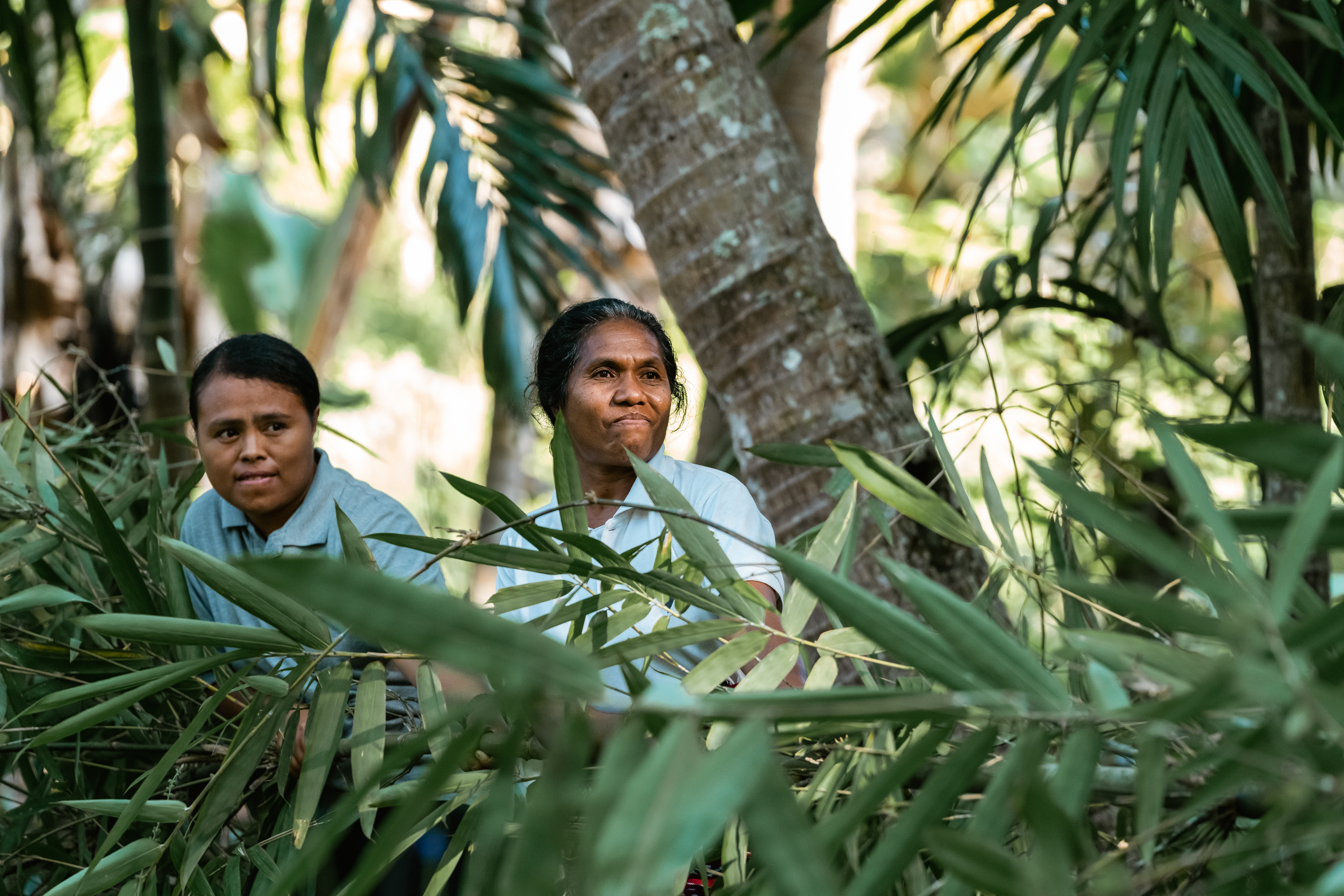Women in an Indonesian village are planting bendy bamboo trees in an effort to give new life to deforested land, break social stigmas, guard against climate change and boost livelihoods. These trailblazers have earned the moniker, “Mama Bambu” or mother of bamboos.
Ethnic communities across Indonesia – a sprawling archipelago of more than 17,000 islands - have cultivated bamboo for centuries to be used for food, fuel and shelter. But historically bamboo cultivation has been dominated by men.
Around 2012, the Environmental Bamboo Foundation (EBF), an NGO founded by conservationists which looks to make greater use of the versatile bamboo trees, came to Flores. They engaged with women to help them realize their skills and talents, while increasing their recognition among villagers.
“There’s a significant difference - particularly if there’s a meeting in the village - we can express our opinion and our confidence is getting better,” said villager Luisa Eleonora Embu, who is part of the Mamu Bambu group.
“Now we think more about bamboo, planting in the village or by the river. We think about its ecology. There’s a change in women’s mindset in this village,” she added.
Stronger than steel, bamboo is not only a sustainable construction material but can also be used to make furniture and crockery, as a food preservative, to prevent landslides and flooding, and for music and crafts. An alternative to timber, the flexible trees grow quickly - even in degraded soil - while their roots can store large amounts of carbon and moisture, which enables plantations to be used as carbon credits.
This is especially useful in Indonesia, which is home to a third of the world’s rainforests and its biggest grower of oil palm, which has experienced high rates of deforestation for decades. Conservationists blame urbanization and the production of commodities like minerals, pulp and paper and oil palm for much of the country’s forest destruction, as they are cleared for plantations, infrastructure, housing, farms and mines.
Learning Together Makes Women Villagers Proud
Since its inception in 2012, the community-led bamboo initiative in Flores has transformed over 400 hectares of land into a flourishing bamboo plantation with the support of private sector companies. Addressing the challenges faced by villagers, the project balances their economic needs with environmental conservation by training women in sustainable bamboo cultivation and best business practices, while helping them access banking services and to develop markets for bamboo products.

"The Mamu Bambu is a group of women who learn from each other” Together, we decide how to take care of the forests, and we have devised a benefit sharing scheme so that everyone’s efforts get rewarded equitably.”
-Maria Akulina | Villager
“When we see the lush bamboo forests, we feel very proud, and more motivated to keep doing more,” she added.
The focus on women’s leadership also addresses broader social issues, such as poverty and domestic violence, illustrating how environmental initiatives can have far-reaching impacts on community welfare.
Monika Tanuhandaru, executive director of EBF said the focus on women in the Flores village project was due to the high incidences of poverty and domestic violence.
“We gave (women) skills and understanding of bamboo, the potential of bamboo and an understanding of the economy for their households,” Tanuhandaru said.
“We empower women to protect forests for their families and future generations," she added.
EBF aims to help establish 1,000 bamboo village projects across Indonesia within five years, with each one capable of restoring 2,000 hectares of degraded land absorbing 100 kilotonnes of CO2 per year and generating US$1-2 million in revenue per year. Schemes like the Flores project are designed to ensure that the financial benefits are equitably shared among all those involved, including local communities, governments, and private investors. Equitable benefit-sharing schemes are fundamental to forest conservation efforts and are championed within the UN-REDD framework.
“Women in the program get USD$150 to USD$200 per month, which is more than minimum wage,” said EBF’s Tanuhandaru, adding that this income proved vital during the COVID-19 pandemic.

“The mothers and the women didn’t have a voice. Now they have a voice in the family. The mother didn’t have a voice in the village. Now they have a voice in the village.
-Monika Tanuhandaru | Executive Director. EBF
Photo credit: © UN-REDD Programme




